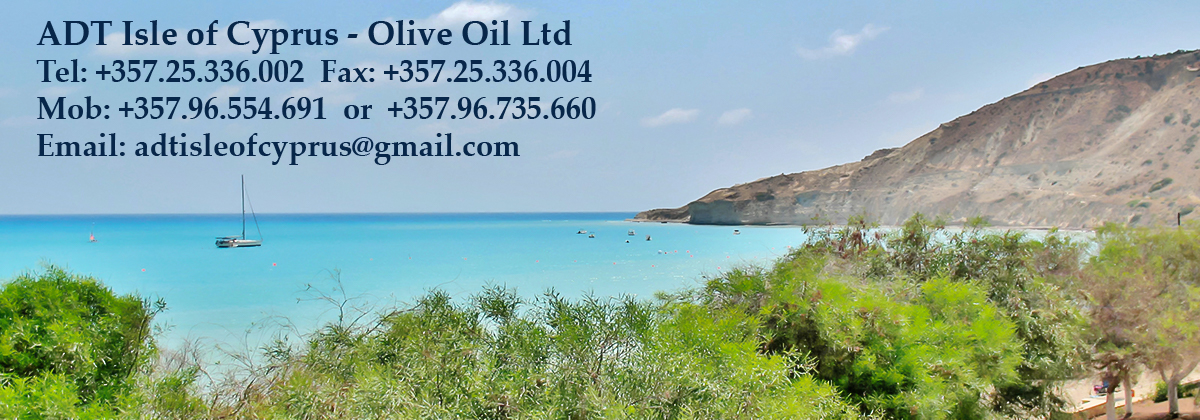Cyprus is an island positioned within the broad region of the Eastern Mediterranean that appears certain to be the origin of the olive tree. Olive trees have been cultivated in Cyprus for thousands of years. The cultivated olive tree (Lat. Olea Sativa Euromediterranea) is an evergreen tree that thrives in temperate climates with relatively little water and can survive for centuries even in harsh climatic and soil conditions.
The tree usually bears fruit (olives) after the fourth year of its life and reaches its full height (6-12 meters, depending on the type) after the tenth year of age. Olive oil is the juice extracted mainly from the flesh of the olive fruit using mechanical processes (as opposed to chemical extraction practiced on seed oils), therefore delivering a product free from chemical additives.

Olive oil is used either raw (in dips and salads) or as a cooking oil. Until the nineteenth century, it was the only oil used in many countries of the Mediterranean basin, and has to this day remained the most coveted one.
Extensive medical research confirms that extra virgin olive oil, which makes the basis of the Mediterranean diet, has many health benefits due to its healthy fats and antioxidants. Benefits include but are not limited to lowered risk of heart disease, reduced risk of cancer, stroke prevention, improvement of cognitive performance and delay or prevention of Alzheimer disease, depression fighting, diabetes prevention, lowering blood pressure.
Olive oil is also well known for its cosmetic and beauty purposes and can be used as a skin moisturizer, in hair nourishing treatments, as a makeup remover etc.
An overall wonderful product of nature, olive oil is a valuable addition to your daily life in cooking, beauty and health.
